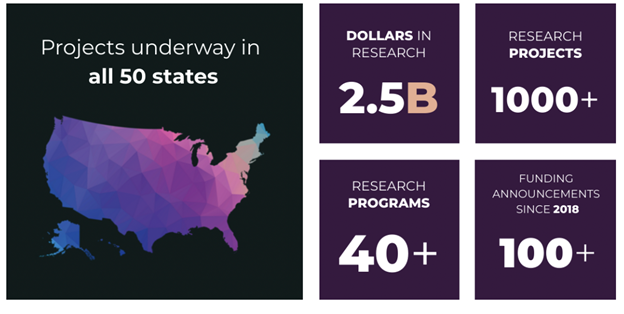By Claire Beard, HEAL Connections Program Leader
We all agree that research results need to benefit people living with health conditions like chronic pain, addiction, and co-occurring conditions. But, too often, important information gets stuck in journal articles and conference presentations. The National Institutes of Health (NIH) Helping to End Addiction Long-term® Initiative, or NIH HEAL Initiative®, is working to solve that problem.
The initiative, often referred to as HEAL, is an NIH-wide effort to speed scientific solutions to stem the national opioid public health crisis. Almost every NIH Institute and Center is accelerating research to address this public health emergency from all angles.
The initiative funds more than one thousand projects across the United States. Researchers are taking a variety of approaches to address the opioid epidemic by:
Because the public health crisis of opioid misuse, addiction, and overdose in America continues to evolve rapidly and overlaps with other significant public health challenges, including inadequately treated chronic pain and mental illness, HEAL is taking an all-hands-on-deck approach to address these challenges. The initiative brings together scientists, community members, the private sector, and multiple levels of government – all sharply focused on ending the opioid crisis.

To achieve a balanced yet targeted research portfolio, HEAL centers its efforts around four overarching themes:
Given the varied challenges posed by the intertwined crises of opioid misuse and addiction and ineffective pain management, HEAL research must be similarly varied in its scope. Challenges for finding new treatments for pain and addiction are starkly different from determining ways to increase access to evidence-based strategies. HEAL researchers seek to advance health equity in care systems – ensuring that all people can receive the treatments and services they need, regardless of their race and ethnicity, sex, age, income, or where they live.
Introducing HEAL Connections
To ensure that HEAL has the broadest impact possible, HEAL Connections was funded by HEAL to help meaningfully share results with communities and stakeholders that will benefit most from research findings and to help build capacity to better communicate research and engage stakeholders.
So far, HEAL Connections has helped disseminate important information about HEAL study results to stakeholders across the country. This effort includes hosting important learning and sharing webinars that help research teams improve engagement and communication such as “Inclusive Language, Imagery, and Storytelling for Addiction and Pain Researcher Teams—Focus on Addiction.” The recording of this event is available to view along with useful resources on reducing stigma in addiction.
In future issues of the ATTC Messenger, HEAL Connections will report on important HEAL study results and resources. In the meantime: